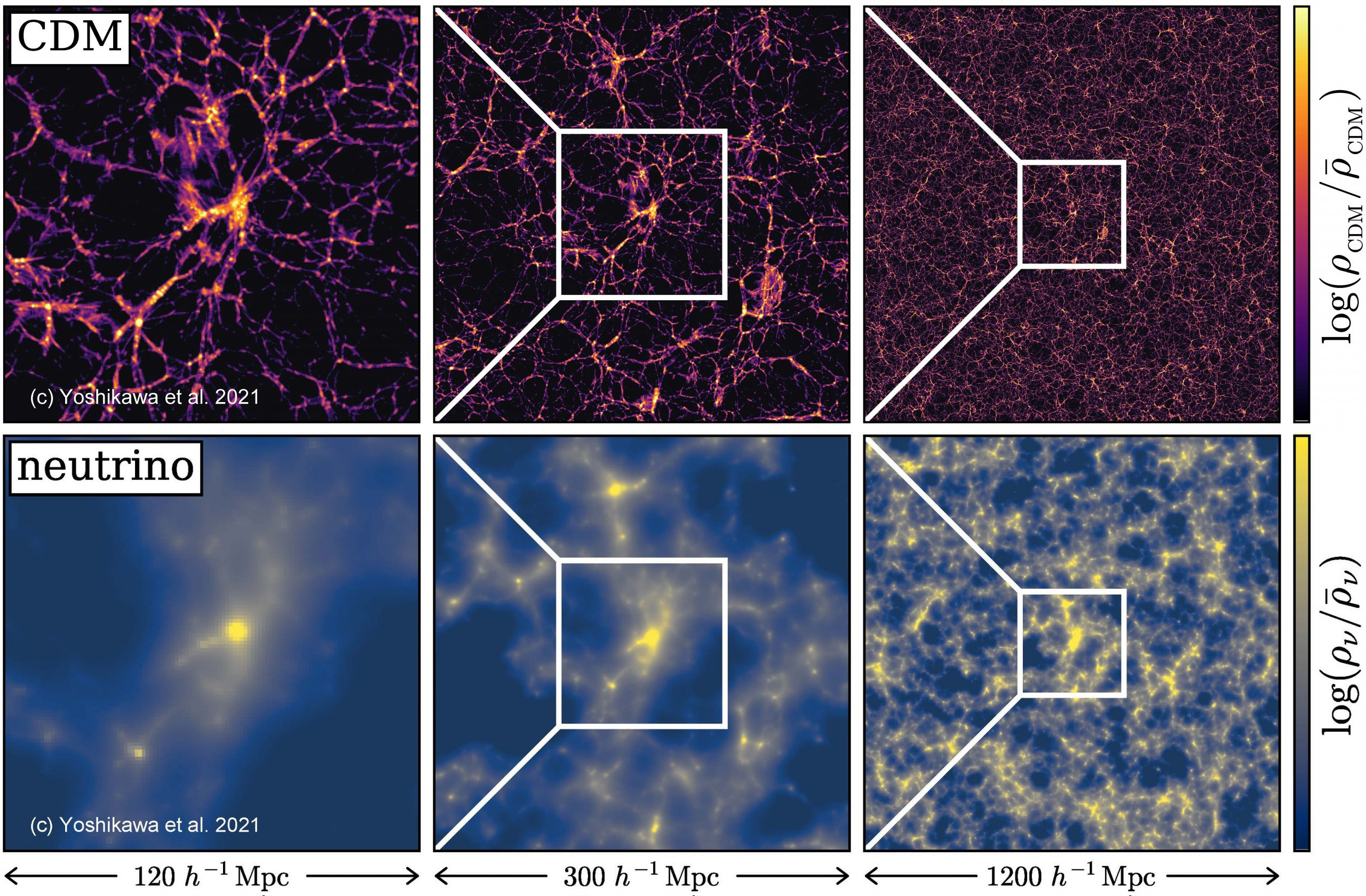Featured Articles
[Press release] A cosmological neutrino simulation using Fugaku chosen as a 2021 Gordon Bell Prize finalist
Yoshikawa Kohji (University of Tsukuba, Center for Computational Sciences)
Tanaka Satoshi (University of Kyoto, Yukawa Institute for Theoretical Physics)
Yoshida Naoki (University of Tokyo, Kavli IPMU)

In this research, a completely new method of Vlasov simulation was developed and adopted in a large-scale simulation of the motion of neutrinos in cosmological structure formation. The simulation was run on the entire system of supercomputer "Fugaku". Vlasov simulations can deliver noise-free numerical results compared to conventional N-body simulations, but the amount of calculations and memory required quickly becomes unmanageably large. In this research, we achieved a parallelization efficiency of over 90% by using a new algorithm and a coding method and parallelization method optimized for "Fugaku". This numerical simulation simulation is the world's largest Vlasov simulation. The simulation domain is divided into about 400 trillion mesh cells, which is of the same scale as the largest N-body neutrino simulation conducted to date. We were able to reduce the time required to reach the solution to about one-tenth. This research paper was shortlisted for the Gordon Bell Prize, which is given to the research group that achieved the most remarkable results of the year in the field of science and technology using supercomputers. The announcement of the winnder of the Gordon Bell Prize will be made at 12:30 local time on November 18th at the Americas Center in St. Louis, Missouri, USA and at an international conference held online.


 和 英
和 英